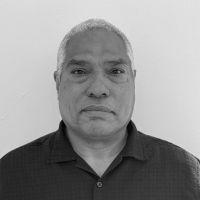I was born in the USA but was raised in Puerto Rico. My sociology was deeply shaped by my training in the social sciences in the University of Puerto Rico-Rio Piedras from 1979 to 1984. However, my formal training was amplified and deepened by my participation in social movements such as the 1981 student strike at the university (1980-1981) and in the squatter settlement struggle of a community named Villa Sin Miedo (1980-1982). I was also elected to student Council representing the Social Sciences and was a member of a pro-independence group named Federación de Estudiantes Universitarios Pro-Independencia which also helped me see how the world operated “for real.”
My graduate training in Sociology took place at the University of Wisconsin-Madison from 1984 until 1993 (MA in 1988 and PhD in 1993). My advisor was Dr. Charles Camic, who moved to Northwestern (now he is an Emeritus professor there).
I initially went to Wisconsin to focus on Marxist Sociology, but soon discovered that academic Marxists were more into “understanding” rather than “changing the world.” After floundering for a bit, I participated in yet another student movement organized by a group called “The Minority Coalition.” As President of a group called Unión Puertorriqueña, I developed a keen interest on racial affairs. This interest coincided with the department appointing me to teach a course on racial affairs in the USA for which I was totally unprepared as my formal training was in class analysis, political sociology, and development (today, they call this sociology of globalization). That course led me to prepare the foundations for my article “Rethinking Racism” as well as for my book White Logic, White Methods.
I began my professional career at The University of Michigan (1993-1998) and moved to Texas A&M (1998-2005), where I became associate and full professor in a relative short time (but the story is more complex). I moved again in 2005 to Duke University and serve now as the James B. Duke Distinguished Professor of Sociology.

